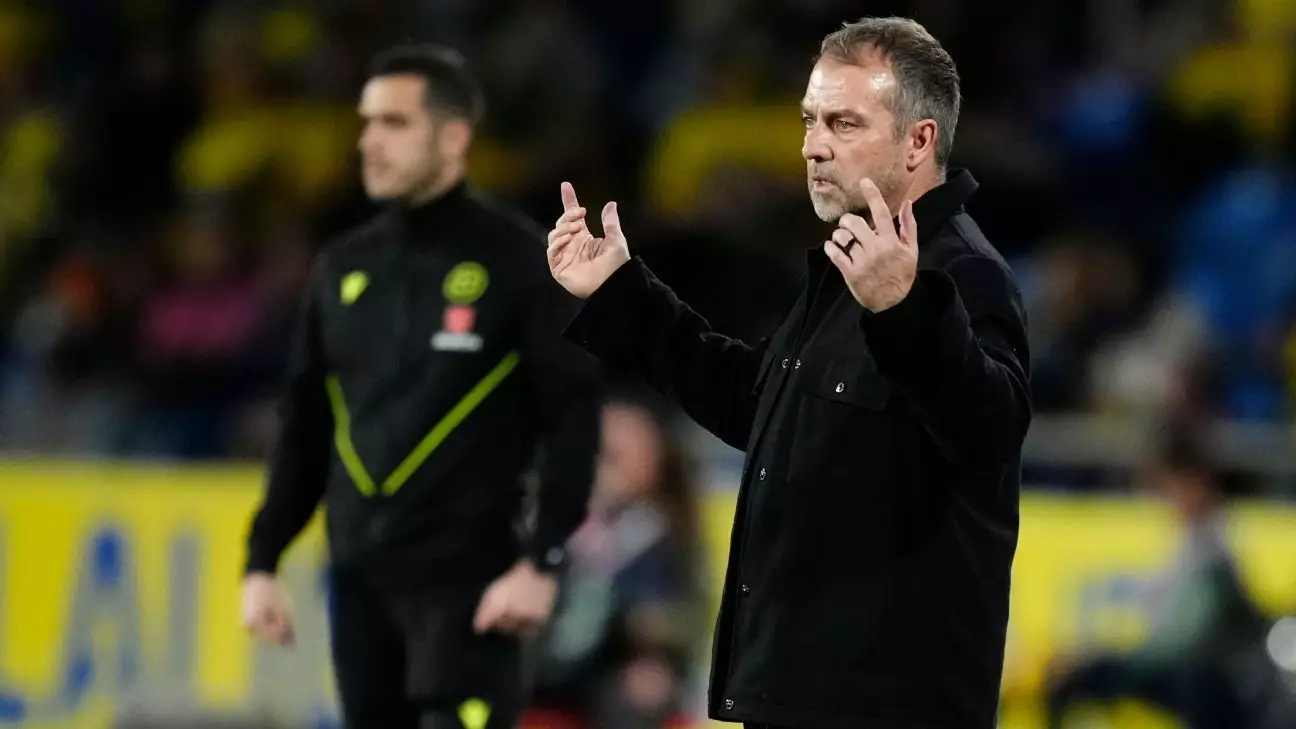The footballing landscape of Spain has always been a blend of intense competition and strategic brilliance. Currently, the LaLiga title race is heating up, with developments that keep fans on the edge of their seats. Recent performances from top teams have kept the narrative compelling, particularly the Barcelona squad under the guidance of their coach Hansi Flick. Following a 2-0 victory over Las Palmas, Flick’s remarks about his team’s need for improvement raised eyebrows and sparked discussions among analysts and fans alike.
Barcelona’s victory at Las Palmas was significant, not just for the three points but for its implications in the title race. With a strong start in the season, they returned to the top of LaLiga after Atlético Madrid’s win over Valencia earlier the same day. The match itself was marked by a shaky first half, where the team seemed disjointed, leading to Flick’s criticism of the players’ performances. While winning is always the goal in football, the coach’s acknowledgment of the inadequacies demonstrated a level of self-reflection that is often missing in professional sports.
Despite the appearance of success, it’s crucial to analyze the nuances of how Barcelona achieved this victory. While Dani Olmo and Ferran Torres secured the win with second-half goals, Flick’s assessment highlighted a glaring disparity between what the team could achieve and what they actually showcased on the pitch. The need for improved positioning and box occupancy reveals a deeper concern about how players are executing the game plan, suggesting a potential for growth that could elevate the team’s subsequent performances.
Flick’s comments don’t just serve as a critique; they are a call to arms for his squad to raise their standards. “In the first half, I missed 5-10% from the players,” he noted, hinting that a lack of sharpness was evident in their execution. This raises questions about the collective mindset of the team and whether complacency has crept in after a series of successful outings. With their unbeaten streak reaching 13 games, there is an inherent risk that success breeds a level of satisfaction that may hinder performance.
Moreover, the emphasis on “occupying the box” speaks volumes about the tactical adjustments required. In modern football, occupying key spaces is critical for transitional play and offensive effectiveness. Flick is pinpointing a significant area for improvement that can be the difference between a good team and a great one. Importantly, it’s not merely about technical skills but understanding spatial awareness in critical moments of the game.
While the reflections on the match were sobering, it is essential to also acknowledge the positives that emerged. The performances from Olmo and Torres as substitutes illustrated the depth of talent Flick can rely upon. Olmo’s return to form is particularly encouraging as injuries can often derail a player’s momentum. His goal, coupled with Torres’ late addition, should serve as a reminder of the richness in team dynamics.
This situation fosters healthy competition among squad members, as players vie for starting positions. Flick recognizes this synergy, noting the importance of these contributions not only for the match at hand but also for the team’s development as a whole. When substitutes can come in and make an impact, it increases the overall resilience and adaptability of the team.
With a busy schedule ahead—including an imminent Copa del Rey semifinal clash against Atlético—it is imperative for Barcelona to harness the lessons from their latest performance. The upcoming match not only poses a challenge in terms of tactics but also provides an opportunity for the team to solidify its position at the top. Revisiting past encounters can provide deeper insights into tactical tweaks necessary for success.
While a win against Las Palmas is commendable, it is clear that Barça must build on this foundation with continuous improvement. Flick’s emphasis on better performance will serve as a motivating factor to drive the team forward. The title race is far from over, and consistency in performance can be the key to retaining dominance in LaLiga.
While the victory over Las Palmas reinstated Barcelona at the top of the table, it is the commitment to improvement that can elevate their standing in both domestic and European competitions. The journey of a team is or the collective evolution, and under the watchful eye of Hansi Flick, achieving greatness remains firmly in their grasp.


Leave a Reply